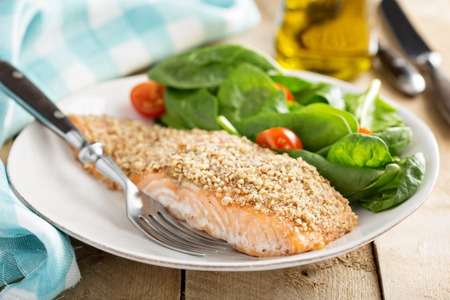The Basic Postpartum Diet

In this article, you will find:
Get antioxidants, eat slowly, add fiber
Eat Foods that Supply Your Body with Antioxidants
Antioxidants are nutrients that help prevent free radicals from building up in your body and causing damage to the proteins and fats that make up your cells. Free radicals are constantly being formed during the metabolic processes that take place in your mitochondria. If your life is in balance and your intake of antioxidants is adequate, you can keep damaging free radicals in check. If you are stressed out, eating poor quality foods, exercising too much or too strenuously, exposed to toxins, or ill, your free-radical burden can build up to levels higher than your antioxidant intake can handle. This is why antioxidant-rich foods are an important part of any diet, especially a diet designed to relieve postpartum complaints and rebuild depleted nutrient stores.
The use of antioxidant supplements in the form of vitamin C, vitamin E, and beta-carotene has become commonplace. This is a good thing, but unless you are taking a very sophisticated antioxidant supplement, these isolated nutrients cannot reproduce the beneficial effects of antioxidants in their naturally occurring forms. When you eat an orange or a peach, there is more to the antioxidants in those fruits than there is to a vitamin-C tablet or a vitamin-E capsule probably including benefits that we have yet to discover in the field of nutritional science.
If you eat a diet rich in colorful vegetables and fruits, you are getting lots of naturally occurring plant-based antioxidants. Herbs and spices such as rosemary and turmeric are also wonderful sources of antioxidant nutrients. Rosemary contains several different phytochemicals that studies have shown to be antioxidant, anti-inflammatory, and antibacterial. Other research has shown that rosemary supports liver detoxification by boosting levels of antioxidant enzymes known as glutathione-S-transferases and quinone reductases and by inhibiting phase I enzymes that convert chemical toxins to more carcinogenic forms. Turmeric is a spice often used in Indian cooking. It also appears as a natural food coloring in mustard and other foods. The spice itself has long been used in Ayurveda, or traditional Indian medicine. It contains a powerful anti-inflammatory, anti-infective, and antioxidant substance curcumin that raises levels of the important antioxidant glutathione in cells throughout the body. It is especially useful for liver diseases such as hepatitis, but everyone especially those whose detoxification systems have been pushed to their limits by the stresses of pregnancy can benefit from the beneficial effects of curcumin on glutathione levels. Curcumin can also be used in supplement form to help heal inflammatory conditions and to promote recovery from surgery or strenuous exercise. (Childbirth is about as strenuous as exercise gets.)
Eat Slowly and Chew Your Food Thoroughly
Eat your meals slowly and deliberately, chewing each bite thoroughly. It is too easy to get into the habit of scarfing down your food when you do not know how long you will be able to sit and eat before being interrupted by your baby. This contributes to digestive troubles and tends to lead to eating more than you really need. If you eat whole foods and chew them completely, you will be amazed at how much better these foods taste and how quickly you become satiated.
It is important not to let yourself get so famished that you grab whatever edible thing first comes within your reach. If you are going out with your baby, pack some healthy snacks to take along with you. Choose foods that contain a balance of protein, carbohydrate, and fat. Some good ideas include celery or an apple with nut butter, nut and seed trail mix, a cheese or tuna fish sandwich on whole-grain bread with sprouts and tomato, a protein-rich smoothie, or if you are really pressed one of the many commercially available protein bars. These bars should be seen as a last resort because they tend to contain refined sugar and other overly refined ingredients, but they are better than a candy bar or a fluffy white-flour pastry.
Eat a Source of Nutrient-laden Fiber, such as Ground Flaxseeds
While we do not recommend that you ingest significant quantities of flaxseed oil, we do recommend that you add whole flaxseeds to your diet in small amounts. Traditionally known as linseeds, flaxseeds are packed with nutrients and fiber, and contain antioxidants that naturally protect against rancidity. They are one of nature's richest sources of ALA, the omega-3 fatty acid, and they contain a type of fiber that is an excellent source of a short-chain fatty acid called butyrate. Formed in the colon by the action of friendly bacteria on the flaxseed fiber, butyrate is the fuel preferred over any other by the cells of the large intestine (the colon), and is made when the good bowel flora digests fiber. The colon is not just a tube that carries wastes out of your body. It is actually an entire ecosystem, harboring beneficial bacteria that help your system to better absorb nutrients and get rid of toxins. Maintaining colon health becomes much easier if you eat a whole-foods diet, and by including flaxseeds in that diet you give your colon extra support.
Store flaxseeds in a container in your freezer. Grind a small amount (a tablespoon or two) at a time in a coffee grinder and add them to cereals, smoothies, and cooked grain.